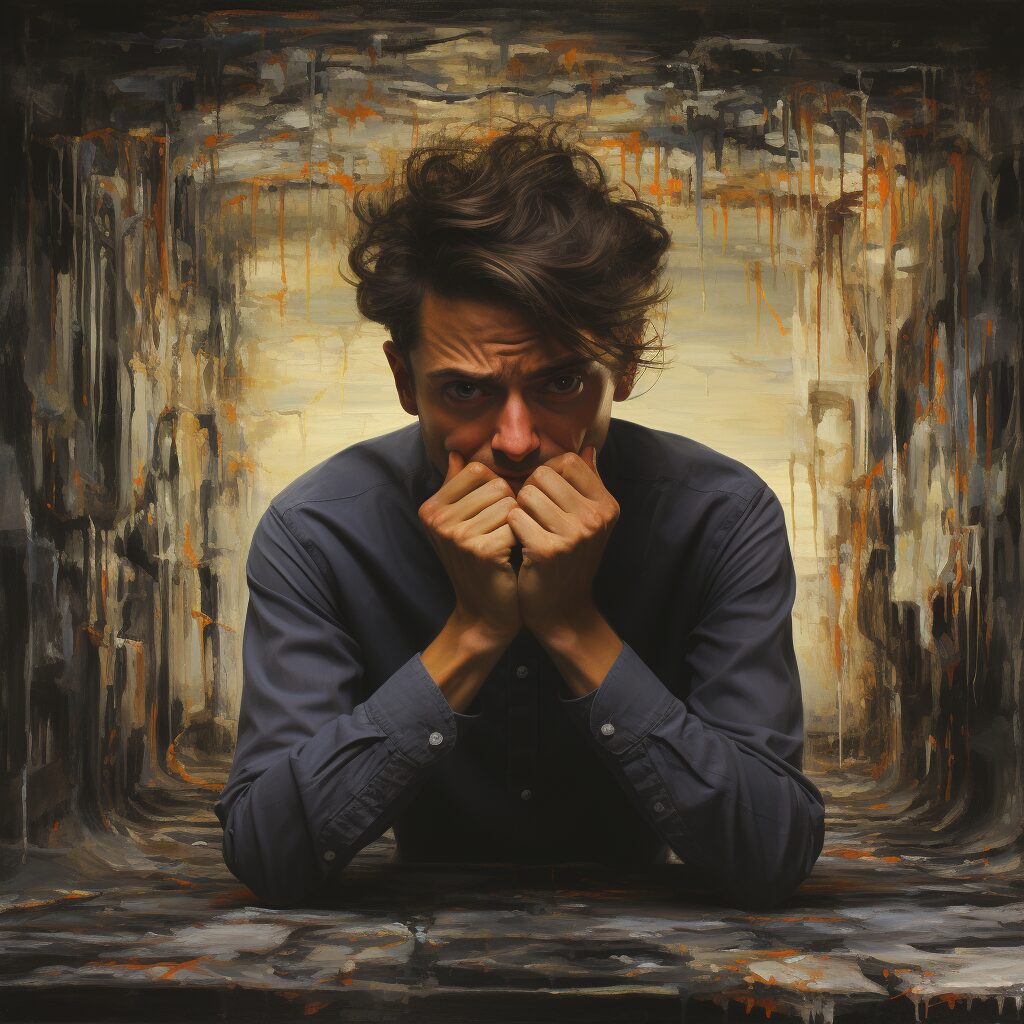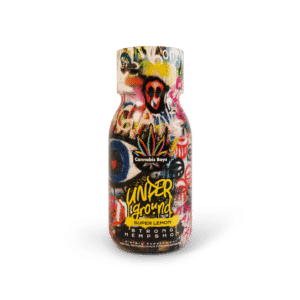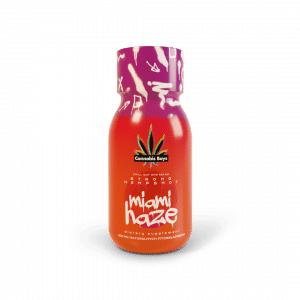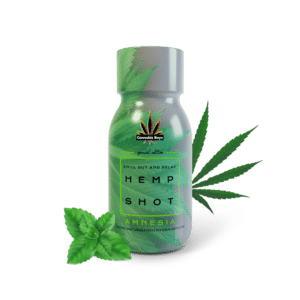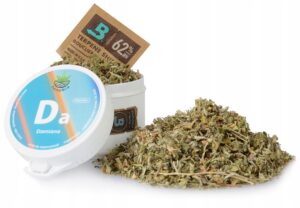Table of contents
Medical cannabis and cannabis extracts are gaining popularity as a treatment aid for anxiety disorders. There is also a growing body of scientific research on the subject. Internet messages about the use of dried or hemp extracts for anxiety are contradictory: some claim that THC and CBD exacerbate anxiety, while others again believe they alleviate it. first it is worth finding out how psychiatry defines anxiety disorders and what science says about the use of hemp phytocannabinoids for people experiencing anxiety.
What is the difference between fear and anxiety and how does stress relate to them?
Fear is an important emotion whose function is to inform us of a real threat. In both humans and other animals, fear is an adequate response to a dangerous factor appearing in the environment. Fear mobilizes us to act: fight or flight.
Anxiety, on the other hand, is an inadequate reaction - it occurs in situations where there are no factors that pose a threat to us.
Stress, from a psychophysiological point of view, is a state in which the body reacts to changing external or internal conditions and prepares to face them. It is understood as an imbalance (homeostasis) of the body.
A stressful stimulus entails activation of the nervous and endocrine systems. The most important "chemical components" of stress include the neurotransmitters epinephrine (adrenal glands), norepinephrine (adrenal glands), dopamine (central nervous system) and the hormone cortisol (adrenal glands).
The relationship of fear, anxiety and prolonged stress can be described as self-perpetuating: overexposure to threatening stimuli will lead to a constant sense of threat, which is associated with constant arousal of the body. Chronic stress can cause the development of various somatic diseases and mental disorders, including anxiety disorders.
Stress and anxiety disorders
Living under constant stress, according to the WHO, is a risk factor for many diseases and ailments (including psychological ones), the source of which modern medicine sees as excessive stress on the body.
Stress-related ailments include:
- fluctuating or depressed mood,
- Mood disorders, such as depression,
- Anxiety disorders, neurosis,
- decrease in immunity (negative effects of excess stress-related hormones on the immune system),
- cardiovascular diseases,
- Gastrointestinal complaints,
- Chronic or recurrent pain.
Types of anxiety disorders
Psychiatry defines anxiety disorders as anxiety exacerbated to persistent, protracted states that do not respond to external stimuli, occurring with additional symptoms of depression and somatic symptoms.
An advanced form of anxiety disorder can prevent the person experiencing it from functioning. There are many levels on which people experience anxiety, so several types of anxiety disorders are distinguished:
- Generalized Anxiety Disorder:
Almost constant feelings of tension and anxiety, occurring with psychosomatic complaints, such as muscle and/or abdominal pain, palpitations, choking sensations, excessive sweating. Somatic symptoms in generalized anxiety disorder originate in the psyche, but are as "physical" and "real" as possible - they can be seen and measured from the outside.
- Social Phobia:
Anxiety in people experiencing social phobia is primarily associated with being judged by other people, being humiliated or criticized. Therefore, people experiencing social phobia feel fearful of social interactions, public speaking, speaking in a larger group of people or even being in a larger group. Finding themselves in such a situation can trigger emotions such as anxiety, fear, shame and the aforementioned somatic reactions.
- Obsessive compulsive disorder (OCD):
This type of anxiety disorder manifests itself primarily by performing the same activity repeatedly. People experiencing OCD try to overcome anxiety in this way. The best-publicized symptoms in pop culture are the constant washing of hands, counting of steps or symmetrical positioning of objects. The disorder can also manifest with persistent catastrophic thoughts.
The best-recognized symptom is constant hand washing, which can be an expression of fear of germs and disease. Obsessive thoughts, such as those of a catastrophic nature, also occur. The person tries to quiet them by performing a certain activity.
- Team post-traumatic stress (PTSD):
Anxiety and other symptoms that may arise after experiencing a traumatic event, that is, an extremely stressful event that exceeds a person's adaptive and emotional capacity. Such events include the experience of war, disaster, traffic accident, calamity, assault, rape, torture.
PTSD symptoms do not appear in all survivors of a traumatic event. For some, the acute stress reaction (ASD) is short-lived - lasting up to four weeks. PTSD is diagnosed when symptoms last more than a month. Symptoms of PTSD include tension, anxiety, recurring memories of the event, feelings of fatigue, "flashbacks," nightmares about the trauma, and avoidance of situations associated with the event.
- Panic attacks, panic attacks.
A panic attack is a sudden attack of very strong anxiety that is unrelated to external factors (paroxysmal anxiety syndrome) or is triggered by certain stimuli, such as in social phobia by a difficult social situation. Panic attack symptoms can vary from person to person. The most common include: dizziness, hot flashes, sweating, palpitations, shortness of breath and chest pain, a feeling of choking, trembling and/or numbness of the body, depersonalization, nausea.
Symptoms of anxiety disorders
There are many types of anxiety disorders, but it is possible to distinguish certain symptoms that occur in most of them:
- A constant sense of anxiety,
- anxiety,
- Voltage,
- difficulty focusing attention,
- irritation, annoyance,
- depression, sadness.
Drugs for anxiety disorders
People experiencing anxiety disorders, if a psychiatrist determines that they should be treated pharmacologically, are usually given one of two types of medication:
drugs for long-term therapy (e.g., SSRI groups, SNRIs) or drugs for short-term intake, whose effect is very fast, but when used in the long term are highly addictive (benzodiazepines).
In the case of drugs for long-term therapy, the effect is observed after 2-4 weeks of use, at which time the so-called "paradoxical reaction" - an increase in anxiety symptoms - can occur. It can be time-consuming and frustrating to select the right drug and optimal dosage for a person, but once the drug is well chosen, most people see a marked improvement.
Benzodiazepines act quickly, eliminating or reducing anxiety symptoms within 15-20 minutes. They are sometimes prescribed to people in crisis or in the process of entering "long-term" medications with anti-anxiety and antidepressant effects.
Recommended by psychiatrists and psychologists treatment of disorders anxiety is group and/or individual psychotherapy.
Anxiety disorders vs. CBD and THC
Let's look at research on the use of hemp cannabinoids In people with diagnosed anxiety disorders.
- Hemp cannabinoids act similarly to SSRI drugs - they help maintain optimal serotonin levels in the body. Similar effects of cannabinoids have been observed with dopamine.
- Another study shows that high doses of CBD applied in people experiencing social phobia reduced anxiety and discomfort and increased cognitive abilities in simulating a stressful social situation.
- A study published in the Journal of Affective Disorders shows that medical hemp seed reduces symptoms in patients with OCD (compulsive-obsessive disorder). Questionnaires from 87 people experiencing OCD were analyzed, which included answers to questions about obsessive compulsions, obsessive thoughts and anxiety levels. Participants completed well-being diaries for 31 months, taking into account the interval between vaporization dried hemp They described their emotions and behavior.
- A similar study took place at Washington State University, in which people experiencing anxiety disorders kept diaries of their emotions and compulsive behavior. As many as 60% of them observed less compulsions during treatment with dried cannabis, 49% experienced fewer obsessive thoughts, and 52% saw a reduction in anxiety.
CBD dosage for anxiety disorders
Consumption CBD best Start with a minimum dose: about 10-20 mg per day, and gradually increase the dose until you get results. Different doses of CBD were used in the studies, tracing them can be a guide for people who would like to start supplementation.
